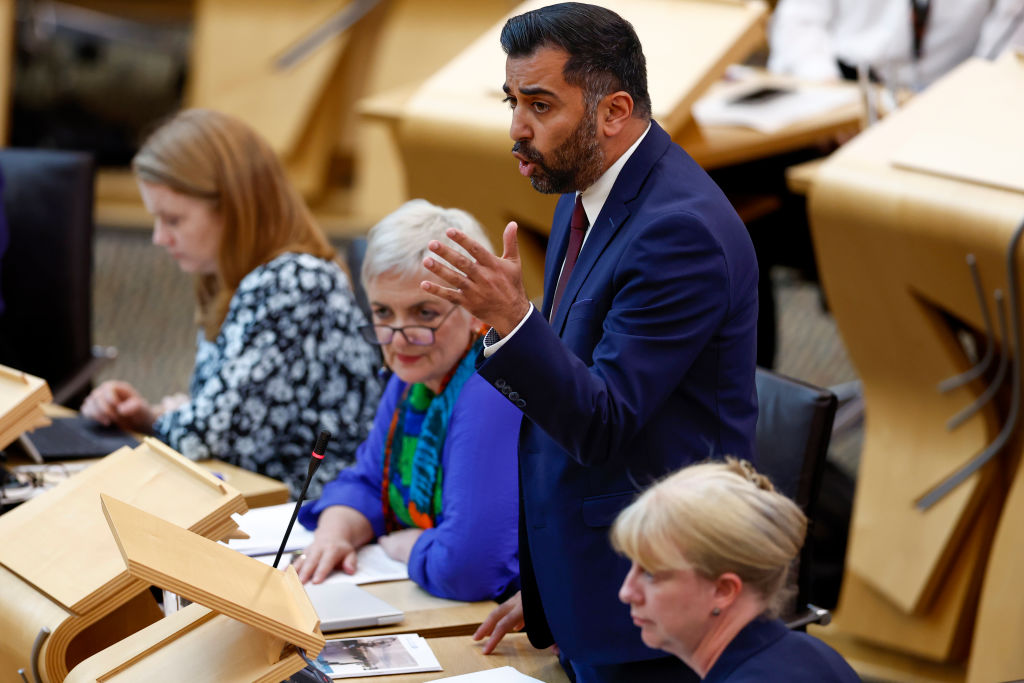It may not have a title quite as resplendent as The King’s speech, but today represents the marquee day in the Scottish Parliament’s calendar. The Programme for Government (PfG), like its regal counterpart at Westminster, is the annual opportunity for Scotand’s First Minister to tell us what his or her vision is and what he or she intends to do with it. Much like The King’s speech, the PfG also gives the government a couple of days of wall-to-wall media coverage, so from the perspective of the political strategist and communicator, it is one of the top two or three moments of the Scottish political calendar.
This PfG was the Humza Yousaf edition. Yousaf is still new enough in the job that this was his first gig, and he was slated to use it in two main ways. Firstly, with the noise of the police investigation currently slightly reduced, we expected him to use it as his first chance to fully emerge from the political and ideological shadow of his predecessor and define himself. Secondly, we expected him to cement his credentials as a pro-business, pro-growth First Minister, odd a requirement as that may seem for the leader of a capitalist democracy.
Did he do either? Partly. But, in truth, he is a man tied by a Gordian Knot. His decision to preserve a coalition with the growth-sceptic Greens is likely to prove, in the final analysis, to be incompatible with an agenda spearheaded by a growing economy.
This is not about Yousaf and his abilities; this is about political and economic reality. Nobody — not Yousaf, not Kate Forbes, not Nicola Sturgeon or Alex Salmond — would be able to convince the country that they can be unashamedly ‘pro-growth’ without implementing the economic policies which allow growth to occur.
So we are left with much the same as we had before; a First Minister with an awful in-tray and the dismal job of pleasing all of the people, all of the time. This need, this contradiction, emerged right at the beginning of the speech and was peppered throughout.
Yousaf told us the government was unashamedly anti-poverty (I am yet to meet anyone, in my life, who is pro-poverty, but that is by-the-by), as proven by the increased welfare payments and higher income taxes. Green box ticked. Then he told us the government was unashamedly pro-growth, looking for cuts in the yet-to-be-devolved Corporation Tax to incentivise growth, along with other incentives to encourage private sector innovation and entrepreneurship. Growth box ticked.
Perhaps for every Scot we lose to England as a result of the high income tax or the tuition fee policy, we’ll get another person in on the back of job creation as a result of the low corporation tax. Everyone will be happy enough, for now. He was nice to business, and nice to the Greens too. He committed to dualling the A9 and A96 (angry Greens) but didn’t put a date on it (happy Greens). He backed major investment in renewables, but bemoaned the granting of new hydrocarbon licences, the profits from which pay for the investment.
Being First Minister is a hell of a job at the best of times. In these times, in these circumstances, it is nigh on impossible. The truth — and it may be an uncomfortable truth for some — is that the entire premise of capitalism is that a reduction in poverty and growth in the economy are inextricably linked. You cannot reduce poverty unless you embrace capitalism and economic growth. Yousaf knows this. Ultimately, the First Minister and his government will reach the point where it has to make a choice. Greens or growth?






Comments